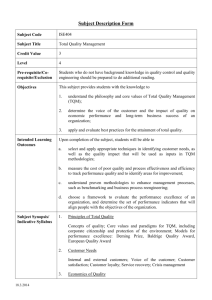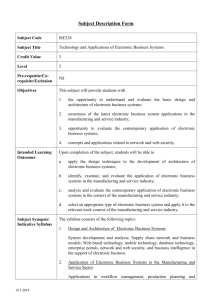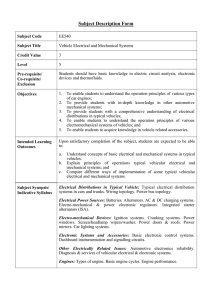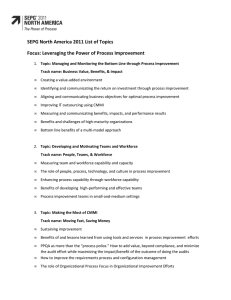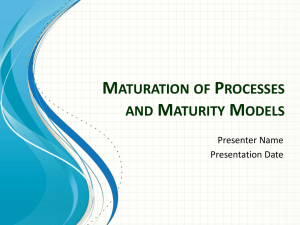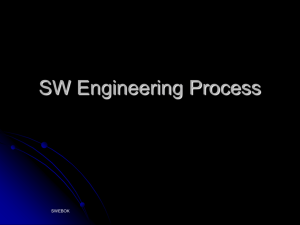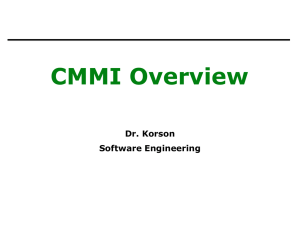ISE411: Software and Data Quality
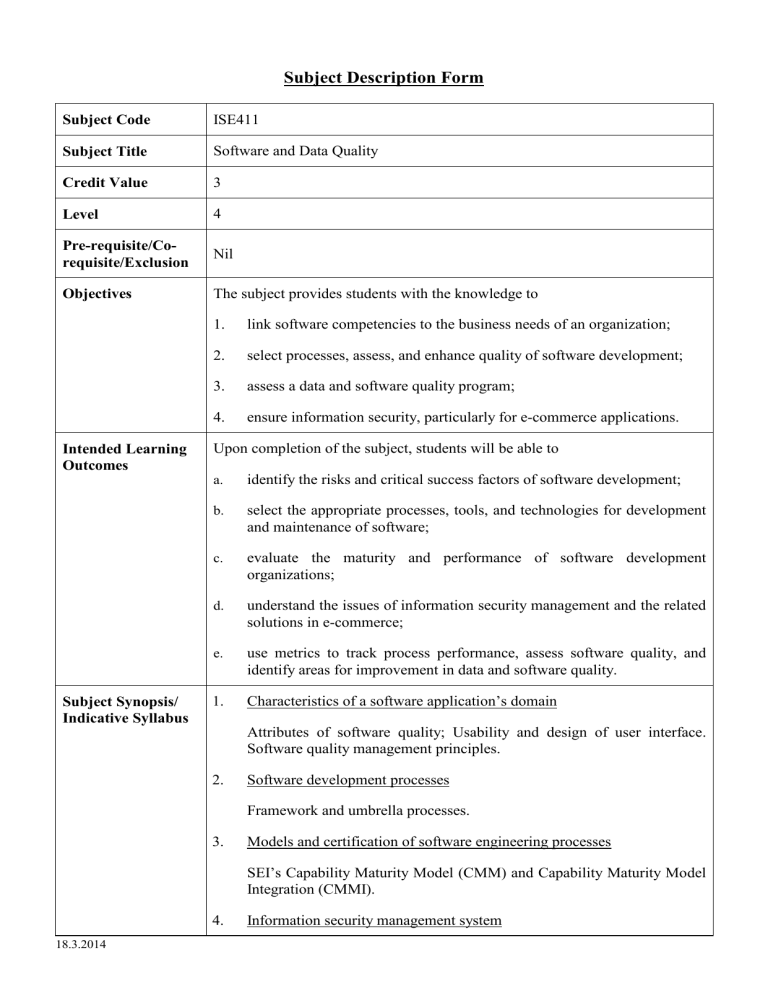
Subject Description Form
Subject Code ISE411
Software and Data Quality Subject Title
Credit Value 3
4 Level
Pre-requisite/Corequisite/Exclusion
Nil
Objectives The subject provides students with the knowledge to
1.
link software competencies to the business needs of an organization;
2.
select processes, assess, and enhance quality of software development;
3.
assess a data and software quality program;
4.
ensure information security, particularly for e-commerce applications.
Intended Learning
Outcomes
Upon completion of the subject, students will be able to a.
identify the risks and critical success factors of software development; b.
select the appropriate processes, tools, and technologies for development and maintenance of software; c.
evaluate the maturity and performance of software development organizations; d.
understand the issues of information security management and the related solutions in e-commerce;
Subject Synopsis/
Indicative Syllabus e.
use metrics to track process performance, assess software quality, and identify areas for improvement in data and software quality.
1.
Characteristics of a software application’s domain
Attributes of software quality; Usability and design of user interface.
Software quality management principles.
2.
Software development processes
18.3.2014
Framework and umbrella processes.
3.
Models and certification of software engineering processes
SEI’s Capability Maturity Model (CMM) and Capability Maturity Model
Integration (CMMI).
4.
Information security management system
Ensuring security for e-commerce applications
5.
Software measurement and improvement
Software metrics. Prevention of software failures: error detection, fault tolerance, defect and root cause analysis.
6.
Strategies for improving data accuracy
Data quality requirements. Measurement systems and data tracking.
Teaching/Learning
Methodology
A mix of lectures, group discussions (tutorials), and mini-case studies is used to achieve the objectives of this subject. Some of the topics are covered in a problem-based format that enhances learning effectiveness; others are covered through directed study and mini-projects so as to develop students’ self learning ability.
Assessment Methods in Alignment with
Intended Learning
Outcomes
Specific assessment methods / tasks
% weighting
Intended subject learning outcomes to be assessed
1. Examination 50% a b c d e
2. Coursework
Quizzes
Assignments
Business case/miniproject
15%
15%
20%
Student Study
Effort Expected
Total 100%
A mix of examination and continuous assessment comprising quizzes, assignments, and mini-case studies are used to assess student’s performance.
These assignments are designed to develop students’ ability to review relevant literature, collect and analyze data, apply the acquired knowledge to draw conclusions or make recommendations to address specific data and software quality issues. The business case / mini-project, with an oral presentation and submission of a written report, aim to test students’ ability to apply practical skills learned in the class. Students’ performance in these assignments and case studies is assessed either individually or in group.
Class contact:
Lecture 2 hours/week for 13 weeks 26 Hrs.
Tutorial/Presentation 1 hour/week for 13 weeks 13 Hrs.
18.3.2014
Reading List and
References
Other student study effort:
Self study, assignments, preparation for quizzes & examination
39 Hrs.
Mini-project work, compile report, prepare oral presentation 42 Hrs.
Total student study effort 120 Hrs.
1.
Pressman, RS 2005,
Software Engineering: A Practitioner’s Approach
,
6 th
edn, McGraw-Hill
2.
Sommerville, I 2007, Software Engineering , 8 th
edn, Addison-Wesley
3.
Kan, SH 1995, Metrics and Models in Software Quality Engineering ,
Addison-Wesley
4.
Paulk, MC, Weber, CV, Curtis, B and Chrissis, MB (editors) 1995, The
Capability Maturity Model: Guidelines for Improving the Software
Process , Carnegie Mellon University, Software Engineering Institute,
Addison-Wesley
5.
CMMI Product Team 2002, Capability Maturity Model Integration
( CMMI ) V.1.1
, Software Engineering Institute
6.
BS ISO/IEC 17799:2000, Information Technology
Code of Practice for Information Security Management
7.
ISO/IEC 25012:2008(E) Software Engineering – Software Product
Quality Requirements and Evaluation (SQuaRE) – Data Quality Model
18.3.2014
